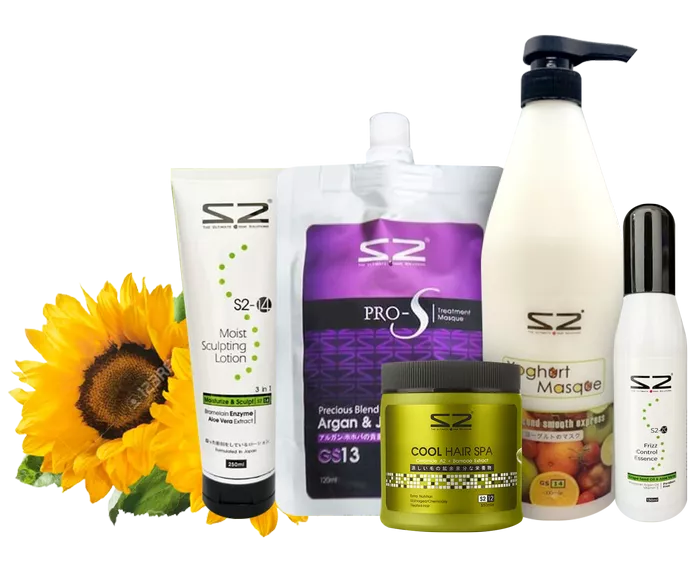Dealing with an itchy scalp can be not only uncomfortable but also embarrassing. Constant scratching can lead to irritation, redness, and even hair loss if left untreated. Fortunately, there are numerous shampoos formulated specifically to alleviate the discomfort associated with an itchy scalp. In this comprehensive guide, we’ll explore the common causes of scalp itchiness, effective ingredients to look for in shampoos, recommended products, usage tips, and lifestyle changes to promote overall scalp health.
Causes of Itchy Scalp:
An itchy scalp can stem from various factors, ranging from minor irritations to more serious underlying conditions. Understanding the root cause is crucial in finding the most effective solution. Some common reasons for an itchy scalp include:
1. Dandruff: This common condition is characterized by flaky skin on the scalp, often accompanied by itching. Dandruff is usually caused by an overgrowth of yeast-like fungus called Malassezia, which feeds on the natural oils produced by the scalp.
2. Seborrheic Dermatitis: Similar to dandruff, seborrheic dermatitis involves inflammation of the skin, resulting in redness, itchiness, and flaking. It commonly affects areas rich in oil glands, such as the scalp, face, and upper chest.
3. Eczema: Atopic dermatitis, or eczema, can manifest on the scalp, leading to itching, redness, and scaling. Individuals with eczema may experience flare-ups triggered by factors like stress, certain foods, or environmental allergens.
4. Allergies: Sensitivity to certain hair products, such as shampoos, conditioners, or styling products, can cause an allergic reaction on the scalp, resulting in itching and inflammation.
5. Over-Exfoliation: While exfoliating the scalp can help remove dead skin cells and product buildup, overdoing it can strip the scalp of its natural oils, leading to dryness, irritation, and itching.
6. Hair Products: Certain hair care products containing harsh chemicals or fragrances may irritate the scalp, causing itching and discomfort.
7. Skin Conditions: Other skin conditions like psoriasis or fungal infections can also contribute to scalp itchiness.
Effective Ingredients:
When selecting a shampoo for an itchy scalp, it’s essential to look for ingredients known for their soothing and anti-inflammatory properties. Here are some key ingredients to consider:
1. Ketoconazole: An antifungal agent commonly found in medicated shampoos, ketoconazole effectively targets the underlying fungal infection associated with dandruff and seborrheic dermatitis, providing relief from itching and flaking.
2. Pyrithione Zinc: This active ingredient helps combat dandruff by regulating the production of skin cells and reducing the fungus that causes flaking and itching.
3. Salicylic Acid: Known for its exfoliating properties, salicylic acid helps remove dead skin cells and unclog hair follicles, thereby reducing flakiness and relieving itching.
4. Aloe Vera: Renowned for its soothing and moisturizing effects, aloe vera can help calm inflammation and irritation on the scalp, providing relief from itching and redness.
Recommended Shampoos:
With a plethora of shampoos available on the market, choosing the right one for your itchy scalp can be overwhelming. Here are some top picks recommended by dermatologists and users alike:
1. Nizoral 1% Ketoconazole Shampoo: This medicated shampoo effectively targets dandruff and fungal issues, providing relief from itching and flaking with its potent antifungal properties.
2. Harry’s Shampoo-Conditioner with Pyrithione Zinc: Formulated with pyrithione zinc, this dual-action shampoo-conditioner combo helps alleviate scalp itchiness and dandruff while nourishing the hair and scalp.
3. Neutrogena T/Sal Salicylic Acid Shampoo: Ideal for those with scalp psoriasis or seborrheic dermatitis, this shampoo contains salicylic acid to exfoliate the scalp and reduce flaking, leaving the scalp feeling refreshed and itch-free.
4. Nioxin Scalp Recovery: Specifically designed for sensitive scalps, this gentle shampoo soothes irritation and itching while promoting a healthy scalp environment.
5. Head & Shoulders Clinical Strength: With its powerful blend of active ingredients, including pyrithione zinc, this clinical-strength shampoo provides relief from stubborn dandruff and scalp itchiness.
Usage Tips:
To maximize the effectiveness of your chosen shampoo and alleviate scalp itchiness, follow these usage tips:
1. Frequency: Use the shampoo 2-3 times a week, or as directed by your dermatologist, to effectively target scalp issues without over-drying the skin.
2. Massage Gently: When shampooing, massage the product into your scalp using gentle circular motions to stimulate blood flow and loosen dead skin cells. Avoid scratching or scrubbing vigorously, as this can further irritate the scalp.
3. Leave on: Allow the shampoo to sit on your scalp for a few minutes before rinsing thoroughly with lukewarm water. This allows the active ingredients to penetrate the skin and provide maximum relief.
Lifestyle Changes:
In addition to using the right shampoo, making certain lifestyle changes can help promote overall scalp health and prevent itchiness:
1. Avoid Hot Water: Washing your hair with hot water can strip the scalp of its natural oils, leading to dryness and irritation. Opt for lukewarm or cool water instead to maintain scalp hydration.
2. Choose Gentle Products: Select hair care products that are free of harsh chemicals, fragrances, and sulfates, which can irritate the scalp and exacerbate itching.
3. Limit Washing: Washing your hair too frequently can strip the scalp of its natural oils, leading to dryness and itching. Aim to wash your hair 2-3 times a week, or as needed, to maintain scalp health.
4. Stay Hydrated: Drink plenty of water to keep your scalp and skin hydrated from the inside out. Hydration plays a crucial role in maintaining the skin’s barrier function and preventing dryness and irritation.
5. Balanced Diet: Incorporate foods rich in essential nutrients like vitamins A, C, and E, as well as omega-3 fatty acids, into your diet to support scalp health and reduce inflammation.
In conclusion, finding the right shampoo for an itchy scalp involves understanding the underlying cause of the itchiness and selecting products formulated with effective ingredients to address those issues. By following proper usage tips and making lifestyle changes to promote scalp health, you can effectively alleviate itching and discomfort, restoring balance to your scalp and hair.


